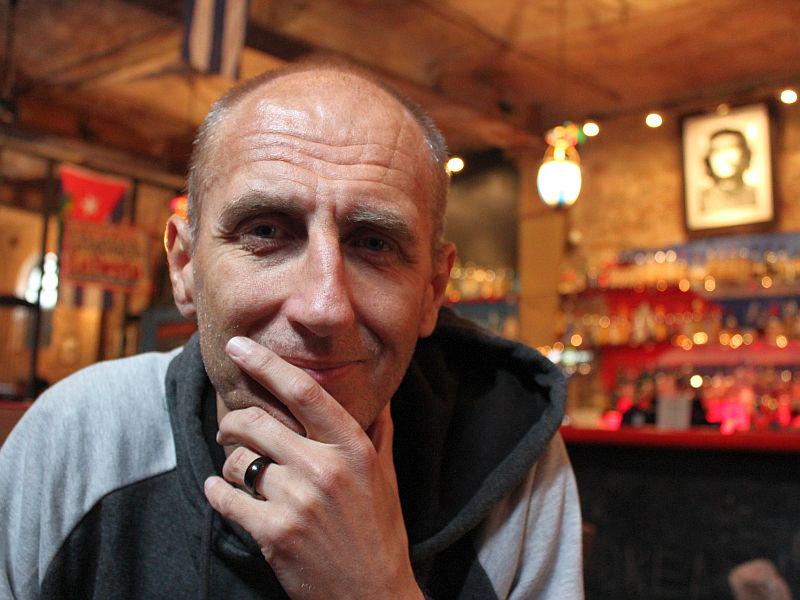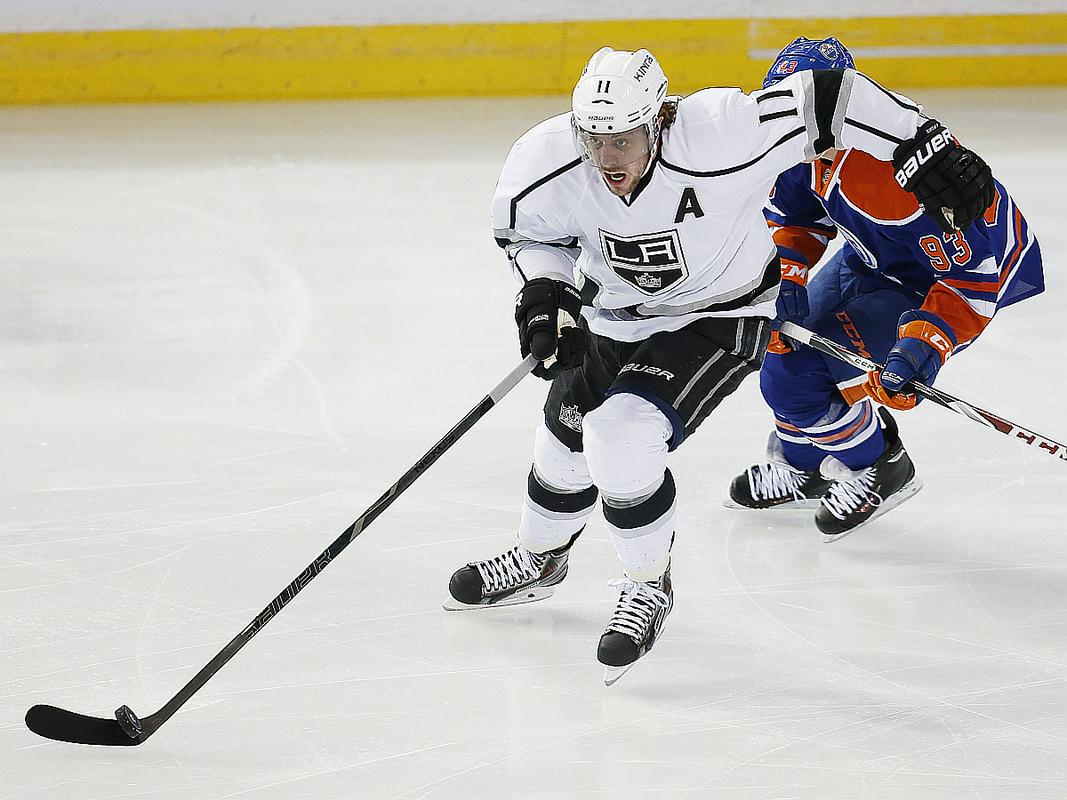
Slovenian ice hockey is hard on its best sons, and perhaps it is the very intransigence on both sides that produces the miraculous elixir which flows in the veins of Slovenia's Lynxes.
I am confident that the spirit of the old fighters has been passed on to the younger generation, so I have no doubt about their openness.
Ice hockey is an expression of pride which must not vanish. As long as there is ice, our hearts will be burning.

The idea to write a book came to him when the Lynxes (Slovenia’s national ice-hockey team) qualified for the Olympics in Sochi. As for the title, the author explains that ‘banda’ in the Slovenian language is a homonym for ice hockey boards and a metaphor for friendship among hockey players, which lasts from childhood until the end of life. Babačić points out: "Gangs have changed and will change, but hockey players will remain loyal to the one and only Gang".
National Proud and the ice
In February, Slovenian people celebrate Culture Day to honour the memory of France Prešeren, the greatest Slovenian poet, who died on 8 February 1849. A stanza of his poem ‘The Toast’ is the Slovenian national anthem. At the beginning of his book, Babačić associates the Slovenian ice-hockey team’s victory against Denmark with Prešeren's poem. It is a metaphor for a cheerful day and Slovenian pride, it is a story about great heroes, tears of joy and an atmosphere of celebration. As the book puts it, "They’ve made it! The time is up on the scoreboard…the eeeend! Gloves, helmets and other bits of their hockey outfits flew into the air. All the players rushed to their goalie, who really deserved it." This is followed by a description of the Danish defeat and the Slovenian triumph: "They [the Danes] had to stay there on ice to salute the winners, and then listen to the anthem by our poet. Everyone sang, including my neighbour, where he thought he could manage…When o'er earth's habitations, no war, no strife shall hold its sway, who long to see that all men free no more shall foes but neighbours be…"
Titova Street
The Jesenice boys are also associated with the Jesenice blocks of flats. In particular, 41, Titova Street. According to the book, "It is a special one, not only due to the nearby railway line which spreads through the town like some octopus. It offers the best panoramic view of Jesenice, if you are high enough, of course. But all of this is nothing compared to what went on in it in the last few decades, when it became the most hockey-friendly residential building in the world. Probably, it is possible to come across some similar building somewhere in Russia, but it would certainly not house such a number of hockey families who settled there voluntarily. 41, Titova Street was home to the Ščap, Pretnar, Karahodžić, Drobnjak, Brun, Kranjc, Bešlagić, Rebolj, Kelih families."
The author wishes to highlight the fact that Jesenice is a hockey town with no equal in Slovenia, including the Slovenian capital. However, the Olimpija Ljubljana team is very important to Jesenice. The best always play best against hard rivals.
Hockey jewels
He also mentions Anže Kopitar, saying, "Anže embodies the story of Jesenice’s hockey school jewels." He stresses his friendly attitude to the gang. "This is what drives you on. The worst thing is when a teammate gives you a sideways look and asks you what you were doing over there. If you tried hard, everything would be forgotten, even if it was a bad game," is Babačić's quote from Anže Kopitar. In the chapter on Kopitar, he writes, "Due to this, we in Slovenia who stay awake late at night to watch their games, feel that our Anže across the Atlantic (at Los Angeles Kings) is the leader of this gang which is more and more becoming our gang."
It can not be overlooked that Slovenia, which covers such a small territory, has such a large number of excellent athletes. This is the point of the metaphor of the block of flats in Jesenice. This is something we should not forget; including when celebrating their wins, we sing our national anthem along with them, God's blessing on all nations,…
Babačić interviewed twenty hockey players and each of them told him his own story. Mustafa Bešić, Peter Rožič, Miha Rebolj, David and Marcel Rodman, Tomaž Razinger, Robert Kristan, Nestl, Rudi Hiti and many others tell us many interesting things. However, Babačić could not capture the thoughts and experiences of all of them, simply because their hockey hearts are too generous. The book is to be continued...Therefore, I found it logical to ask the author for his views on the book and ice hockey.
Did you write this book because you think that Slovenian ice hockey is in crisis?
This was not the main reason, although it became clear at the end that this book had a therapeutic effect. Nonetheless, the Slovenian public became acquainted in more detail with the problems which plague our ice hockey. Through the confessions of our most prominent hockey players, we got at least some idea of how this collective sport, which has brought us so much joy and filled us with such pride – a rare thing today – has been looked upon over the decades.
In your opinion, who is the greatest figure in Slovenian ice hockey?
There is simply no answer to that question. In alpine skiing, for example, the choice of our greatest skier ever would be very tempting, let alone that of the greatest ice-hockey player. It is precisely because there are so many candidates to choose from that I decided to write a book. From today's perspective, the choice may seem to be easier, since Anže Kopitar is a jewel beyond comparison. But looking back, a true hall of fame of ice-hockey giants opens before us, all of them heroes, each unique in his own special way, in their character traits and way of playing; each of them supported by his own admirers and followers. This has always been about the mutual attachment of fans and hockey players. And even more so in this sport which is full of bravery and pure rivalry. The team always came first, but the gang was kept together by individual heroes.
Do Slovenian hockey players have the same resilience as those described in the book?
I am confident that the spirit of the old fighters has been passed on to the younger generation, so I have no doubt about their openness. My initial feelings after seeing a single training session at Olimpija are very good. Moreover, hockey players are not introverted, self-centred people who do not care about life around them. Even though nowadays there may be less of that original socialising among the gang than before.
You dedicate a special chapter to Viktor 'Viki' Tišler. Does this involve a personal relationship between yourself and Viki?
I knew Viki, who unfortunately passed away, from shooting the documentary film Jesenice : Detroit; then, I realised how charismatic this man was. When the film was finished, I regretted not having done it differently. Viki was a unique character, his charm radiated all around him. Everyone loved him, but he never received the acknowledgment that he deserved. He was the best example of how our clubs (mis)treated their greatest sons. Even today, I am convinced that a true and serious film should have been made about him. However, in our country, where films are decided and made on the basis of various affiliations, this is hardly possible. Viki's story reminded me of the stories of all those people who firmly stick to their principles and who never yield to anyone, regardless of the consequences. Perhaps one day we can see his jersey fixed to the ceiling of Jesenice hockey arena.
You describe many people’s experiences. What are the similarities and the differences?
I talked to more than twenty former and active hockey players, and I have to admit that their experiences coincided in many cases. Almost all of them encountered similar problems, which have plagued Slovenian hockey since its beginnings. Almost every one of them has gone through bitter experiences that he had to overcome in one way or another. Some were luckier than others but this does not change my general impression. Slovenian ice hockey is hard on its best sons, and perhaps it is the very intransigence on both sides that produces the miraculous elixir which flows in the veins of Slovenia's Lynxes. It is interesting to note that both the Olimpija and Jesenice hockey players spoke highly and with great respect of their greatest rivals and praised them, in particular, their personal qualities. Under the ice hockey armour, you will find sensitive people, with clearly defined views on sport and life, respectively.
You talk of the good and the bad gang. What do you have in mind? Perhaps a win by the good gang?
In our country, unfortunately, it is increasingly evident that the bad gang has prevailed over the good one. Actually, this book is a sort of reminder that, in spite of everything, the good gang is still here. It is a fact that Slovenians, since gaining independence, happened to have supported the wrong gang, which was adroit in changing the colour of its jerseys in such a manner that the audience was unable to tell the good from the bad. In the end, we were cheated, but we are still watching one and the same game.
Can Slovenia also be an ice hockey nation and not just a skiing nation?
Yes, absolutely, indeed. We are the proudest nation when it comes to supporting ice hockey, at least in terms of how few we are and how hard we can strike when we are keen to do so. Although basically individualists, our presence in this collective sports game has been very consistent. Ice hockey is an expression of pride which must not vanish. As long as there is ice, our hearts will be burning.
Can we expect to see another chapter in your story about ice-hockey players?
Of course. In fact, ‘Banda’ is only the beginning. Too many heroes were left out of the first part of the book, or did not express everything they would like to; ‘Banda’ will have at least one sequel. We are currently seeking a publisher across the Atlantic. Eventually, the English version will be slightly revised, with an emphasis on comparisons between Slovenia and other world hockey powers, such as Russia and the United States, who we played at the Olympics in Sochi. Given the situation in our country, it is a minor miracle that the publication of the first book was supported by an eminent Slovenian-Austrian company; luckily, Inkla recognised the potential of the story and supported it accordingly.
Tanja Glogovčan, SINFO
Slovenian ice hockey is hard on its best sons, and perhaps it is the very intransigence on both sides that produces the miraculous elixir which flows in the veins of Slovenia's Lynxes.
I am confident that the spirit of the old fighters has been passed on to the younger generation, so I have no doubt about their openness.
Ice hockey is an expression of pride which must not vanish. As long as there is ice, our hearts will be burning.


































































